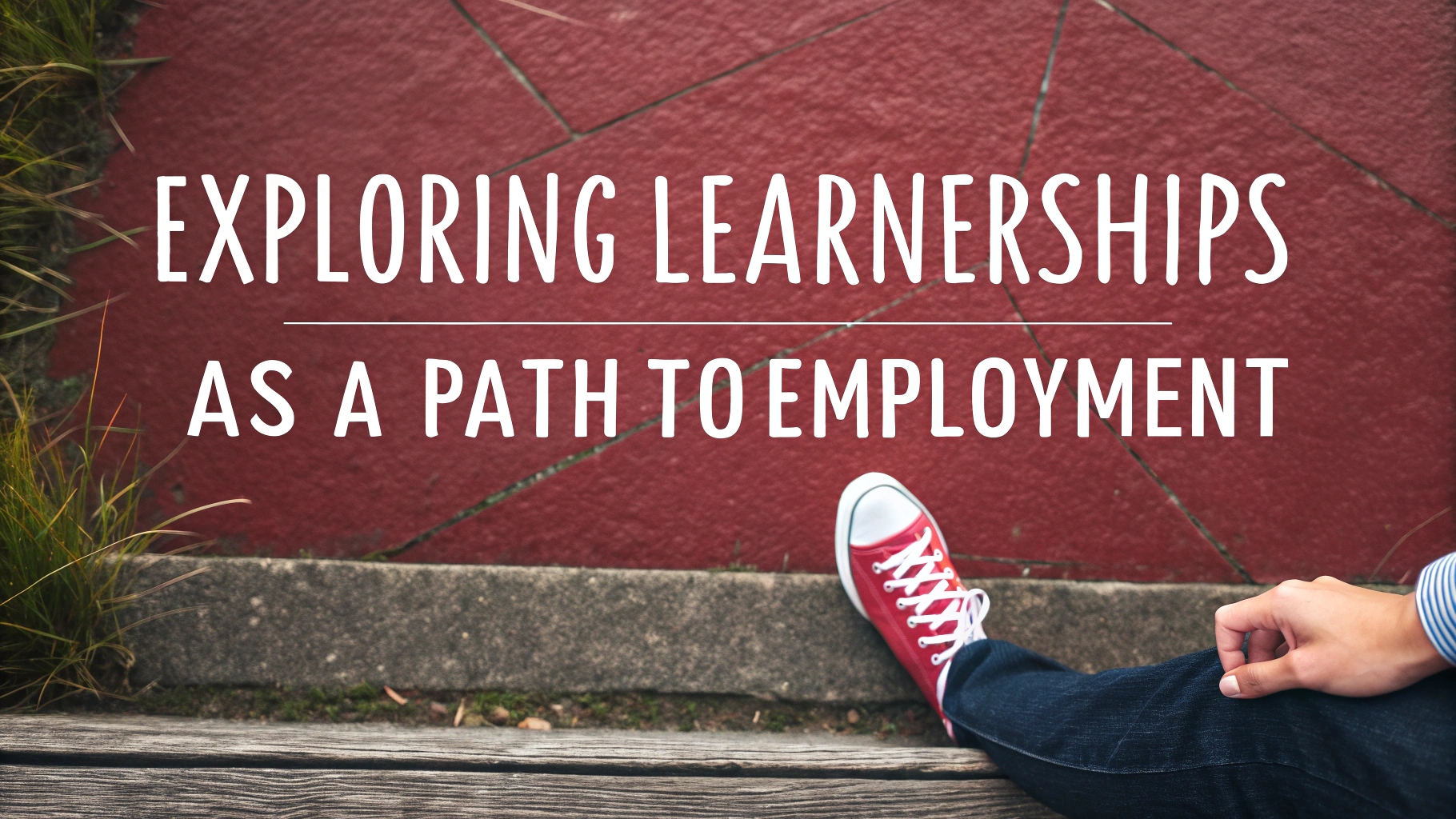Exploring Learnerships as a Path to Employment

In today’s competitive job market, many young people and job seekers face significant challenges when trying to enter the workforce. One effective pathway that has gained popularity, especially in South Africa, is the learnership program. Learnerships combine practical work experience with theoretical learning, providing an excellent opportunity to gain skills, qualifications, and valuable exposure in various industries. In this blog post, we’ll explore what learnerships are, how they work, their benefits, and how you can successfully apply for one.
What is a Learnership?
A learnership is a structured learning program that combines theoretical training with practical workplace experience. It is typically offered by employers, training providers, and government entities in partnership to help learners gain relevant skills aligned with industry needs. Unlike traditional academic programs, learnerships are designed to bridge the gap between education and employment, equipping participants with the competencies needed to perform specific jobs.
Learnerships often result in a nationally recognized qualification or part-qualification registered on the National Qualifications Framework (NQF). This makes them valuable credentials when entering the job market or progressing in a chosen career.
How Do Learnerships Work?
Learnerships usually last between 12 to 24 months, depending on the complexity of the qualification and sector requirements. The program has two key components:
-
Theoretical Training: This is usually provided by an accredited training institution or provider. Learners attend classes or workshops where they acquire the foundational knowledge related to their field. This can include topics like business administration, information technology, engineering principles, or customer service.
-
Practical Workplace Experience: Alongside the classroom learning, learners spend time working at a company or organization where they apply what they’ve learned in real-world settings. This hands-on experience is crucial because it helps learners develop job-specific skills and understand workplace culture.
Throughout the learnership, learners are supported by mentors and supervisors who guide them and assess their progress. On successful completion, learners receive a qualification or certificate that can improve their employability.
Who Can Apply for Learnerships?
Learnerships are primarily targeted at youth and unemployed individuals who want to gain work experience and improve their job prospects. However, many programs also accept people of all ages who are looking to upskill or change careers.
In South Africa, learnerships are especially promoted to address the country’s high youth unemployment rate. The government and private sector work together to create learnership opportunities in various industries, including:
-
Information Technology (IT)
-
Finance and Accounting
-
Engineering and Manufacturing
-
Healthcare
-
Hospitality and Tourism
-
Agriculture
-
Retail and Customer Service
Benefits of Learnerships
1. Gain Practical Skills and Experience
One of the biggest advantages of learnerships is the hands-on experience they offer. Many employers prefer candidates who have actual workplace exposure rather than just theoretical knowledge. Learnerships allow you to build confidence, competence, and familiarity with industry practices.
2. Earn a Recognized Qualification
Completing a learnership often results in a certificate or qualification registered on the NQF. This is valuable proof of your skills and can improve your chances of securing employment or pursuing further education.
3. Improve Employability
Because learnerships combine learning and work, you get a foot in the door with employers. Many companies use learnerships as a talent pipeline, and successful learners may be offered permanent employment after the program ends.
4. Receive a Stipend or Salary
Many learnerships provide a stipend or monthly allowance to help learners support themselves during the program. While it may not be a full salary, it helps cover basic living expenses.
5. Network and Mentorship
Learnerships connect learners with experienced professionals and mentors who provide guidance, support, and valuable industry contacts.
How to Find and Apply for Learnerships
1. Research Opportunities
Start by identifying sectors or companies you’re interested in. Many learnership opportunities are advertised on company websites, job portals, government platforms such as the National Career Advice Portal, and on social media.
2. Meet the Requirements
Each learnership has specific entry requirements, which can include:
-
Minimum education level (e.g., Grade 12 or equivalent)
-
South African citizenship or valid work permits
-
Specific skills or subjects studied in school (e.g., Mathematics, Accounting)
Make sure you carefully check these before applying.
3. Prepare Your Documents
Most learnership applications require a CV, certified copies of your ID, school results, and sometimes a motivation letter. Take time to prepare these documents professionally and highlight your interest and suitability for the program.
4. Apply Promptly
Learnerships are competitive, so apply as early as possible. Follow the application instructions exactly and submit all required documents.
5. Prepare for Interviews and Assessments
If shortlisted, you may be invited to an interview or assessment. Prepare by researching the company, understanding the role, and practicing common interview questions.
Tips for Success During a Learnership
-
Be punctual and professional: Treat your learnership like a real job.
-
Ask questions: Don’t be afraid to seek clarity or help when you’re unsure.
-
Network: Build relationships with colleagues, mentors, and trainers.
-
Stay committed: Complete all tasks and assignments diligently.
-
Take initiative: Show eagerness to learn and contribute.
Final Thoughts
Learnerships are an excellent stepping stone to building a successful career, especially for young people and those new to the job market. By combining education with practical experience, learnerships give learners the skills and confidence employers look for.
If you’re struggling to find employment, exploring available learnerships in your area or field of interest could be the key to unlocking new opportunities. Start your journey today by researching programs, preparing your application, and taking full advantage of this valuable pathway to employment.